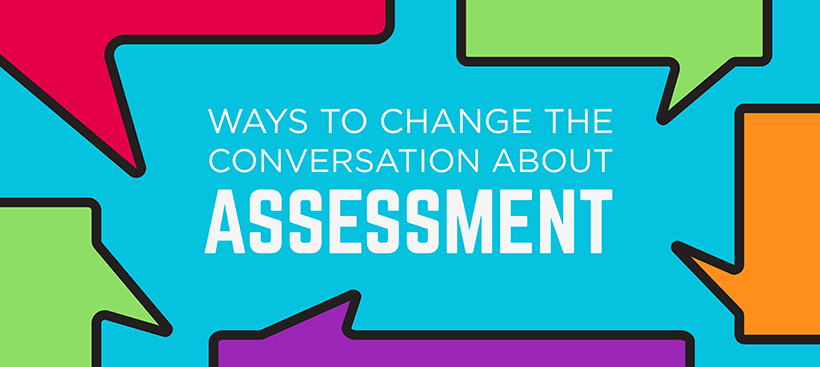This blog was written by Peggy O’Neill and the NCTE Standing Committee on Literacy Assessment.
When I left my career as a secondary English teacher to start a PhD program in Composition and Rhetoric, I thought I had left behind the ever-present worry about testing—state-mandated performance tests, basic skills tests, Advanced Placement exams, SAT test prep. I wanted to immerse myself in rhetoric and argumentation, in theory and scholarship.
But I couldn’t escape testing and assessment. My college students shared their high school writing experiences with me. Many of these students understood writing only as something one did for a test score or a grade. Their development as writers was shaped by their particular experiences with writing assessment—standardized exams, teacher grading, and placement tests. They perceived writing as a means of sorting, labeling, rewarding, and punishing them. I ended up making writing assessment my primary research area because I saw the power it had to shape writers and writing. So much for leaving assessment behind.
In the two decades since I finished graduate school, test scores and high-stakes standardized tests have come to dominate conversations about education even more. Politicians, pundits, parents, and even educational leaders emphasize test scores—whether from AP exams, SATS, or state-mandated tests, whether talking about success, calling out failures, or pushing for reforms.
Many believe that test scores are reliable indicators of learning. As teachers and researchers, we know that this isn’t true.
Test-based accountability (TBA) approaches to educational reform, which emphasize test scores, have failed to substantially improve education, according to researchers such as Diane Ravitch, once a proponent of TBA, and Daniel Koretz, a researcher and expert in educational assessment.
As one teacher respondent noted in the Assessment Story Project survey, “National testing is an unnecessary, money-making venture that provides NO usable data for classroom teachers. It is punitive for students as well as teachers.” Many of us, like this teacher, have experienced the frustration and sense of powerlessness associated with the testing mania that has infected so many schools and districts.
So how can we as literacy teachers start changing the conversation to emphasize teaching and learning instead of testing?
First, we need to remember that testing is only a small part of what we mean by assessment.
As teachers we know that assessment, broadly defined, is critical to effective teaching. Another Assessment Story Project respondent put it this way: “Everything I do in class is a form of assessment: class discussions, small group discussions, one-on-one conversations with students, informal writing assignments, formal essays. Students are constantly being assessed and I’m constantly updating my understanding of their progress.”
This kind of formative assessment is not about standardized tests and mandated assessments.
Second, we need to shift the way we think and talk about assessment, student performance, and improvement.
After years of policymakers and educational pundits pushing test-based accountability, we need ways of changing the conversation about assessment to emphasize formative, thoughtful, and responsive assessment.
As teachers, we can reimagine how we talk about assessment, shifting from a focus on test scores to a focus on students’ learning, development, and performance on a variety of tasks, both formal and informal.
Changing our assessment conversations with students, peers, administrators and even policymakers may seem like a small step but it can have big implications for our students, schools, and communities. But making this shift means, for many of us, being thoughtful about our language, our purpose, and our audiences. It means using resources and research to frame our conversations. It means resisting the simplistic, easy authority of test scores, mandates, and policies.
Our goal in this blog series is to provide readers with 1) practical, evidence-based strategies for shifting the conversation from testing to assessment, and 2) resources to help you in these conversations.
We look forward to sharing our insights about literacy assessment as teachers, scholars, and teacher-educators with you, and to hearing from you about your experiences, your concerns, and your dreams of how assessment could be shaped in the future to enhance teaching and learning.
NCTE Standing Committee on Literacy Assessment
Peggy O’Neill, Chair
Scott Filkins
Josh Flores
Bobbie Kabuto
Becky McCraw
Kathryn Mitchell Pierce
Elisa Waingort
Kathleen Blake Yancey

